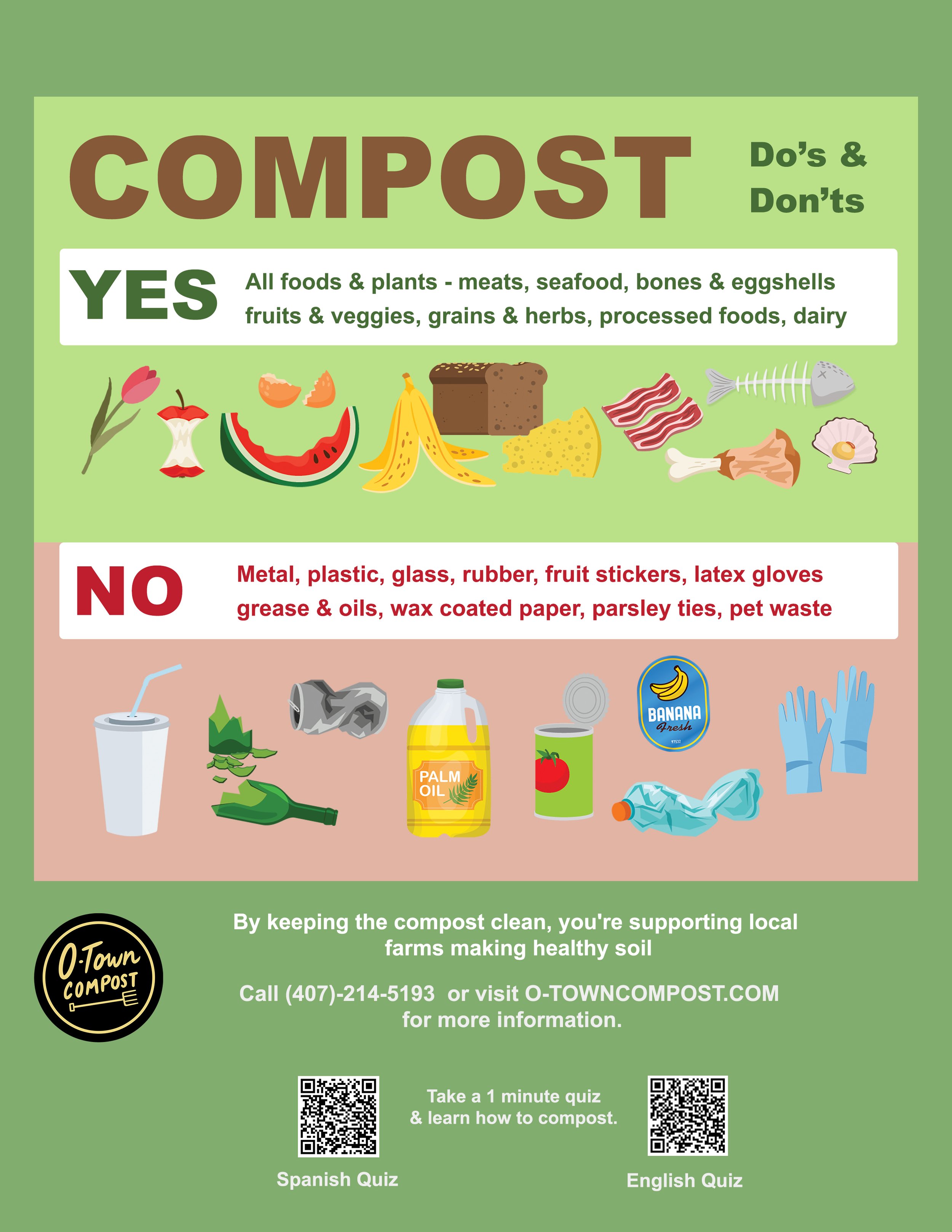Mount Dora, Florida, February 3, 2025 - O-Town Compost is excited to announce that we are now offering our simple, convenient, odor, and pest-free commercial services in the Mount Dora, Florida area. Kicking off our commercial services in the region is the Chipotle Mexican Grill on US-441N. O-Town Compost has had a long standing, established relationship servicing the composting needs of the many Chipotles located in the Orlando area. Because of this relationship, we are thrilled to extend our services with them into the Mount Dora area and can now offer our services to all commercial businesses in the region.
O-Town Compost continues to expand its residential, office, commercial, and events clients here in the Orlando and in the Central Florida region, while constantly looking to responsibly expand coverage into regions that broaden our ability to collect, divert, and compost as much food and organic waste as possible in the state of Florida. Our recent launch of commercial and multi-family food waste collection in the City of Gainesville, FL, and now, the inclusion of Mount Dora into our service areas, exemplifies our commitment to finding new cities, towns, neighborhoods, and communities that will benefit from our services.
Our mission has always been to capture and divert as much food waste going to Central Florida’s landfills as possible while supporting the health of the local soil. To achieve this goal, the food waste that O-Town Compost collects will be transported less than 20 miles to a nearby composting site to be processed into finished compost.
O-Town Compost was founded by Charlie Pioli in Orlando, FL in 2020. An ex-waste industry consultant, he had two missions in mind: to reduce food waste going to Central Florida’s landfills while supporting local soil health.
To date, O-Town Compost has diverted over 6.5 million pounds of food waste from the landfill, serving over a 1,000 businesses and residents. This has been made possible with local farm partners who work to process organic waste into soil amendment, which in turn is used on their farms to increase yields and fertility.
Learn more about O-Town Compost at O-TownCompost.com Follow us on Instagram and Facebook





















